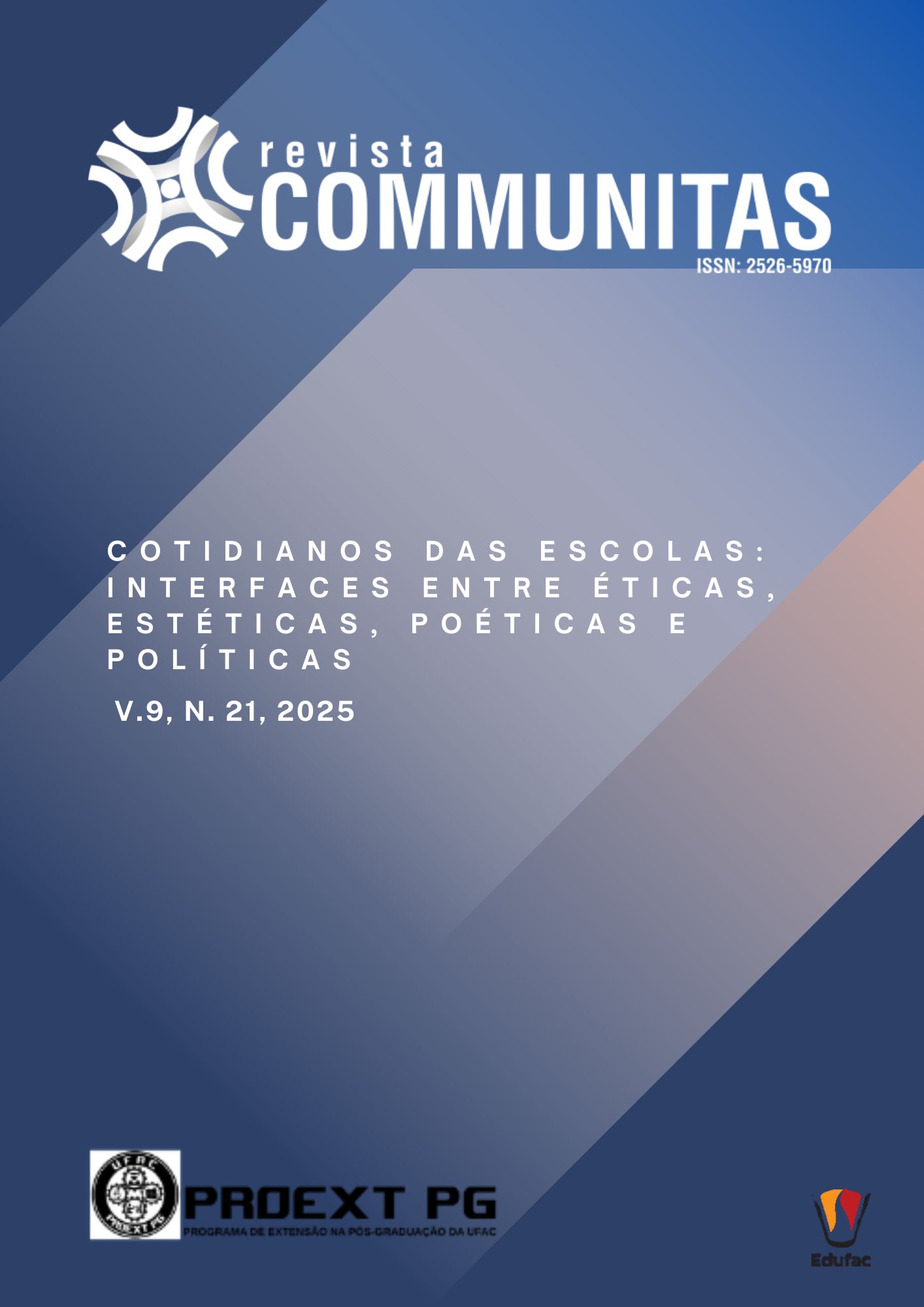INSTAGRAM AND THE CIRCULATION OF 'KNOWLEDGE-SIGNIFICATIONS' IN THE EVERYDAY LIFE OF 'OUTSIDE' SCHOOLS
DOI:
https://doi.org/10.29327/268346.9.21-2Keywords:
educational networking. technological artifacts. social networks. InstagramAbstract
In this article, we reflect on the processes by which the multiple 'spaces-times' of the many 'inside-outsides' of schools make possible, through cultural, curricular and technological artifacts, the creations and ways of 'doing-thinking' with everyday life. In the research we have carried out, we see conversations as a methodological way of identifying the movement of the encounter in its various 'spaces-times' of research. This methodology focuses attention on what is presented during conversations as a creative action. In this way, the aim of this article is to understand how the 'uses' of social networks, technological and cultural artifacts are made by teacher researchers in their social networks. In the movement of 'seeing-listening-thinking' with teacher researchers, we talked to them through their Instagram social network profiles, a 'space-time' that is used as a tool for scientific circulation and dissemination of 'knowledge-meanings' of their 'practices-theories-practices' and daily struggles for an education with more equity and that respects all forms of existence in the world.
Downloads
References
ALVES, Nilda; FERRAÇO, Carlos Eduardo. Conversas em redes e pesquisas com os cotidianos – a força das multiplicidades, acasos, encontros, experiências e amizades. In: RIBEIRO, Tiago; SOUZA, Rafael; SANCHEZ, Carmem (Orgs.). Conversas como metodologia de pesquisa, por que não? Curitiba: CRV, 2018. p. 55-63.
ALVES, Nilda. Sobre as redes educativas que formamos e que nos formam. In ALVES, Nilda. Práticas pedagógicas em imagens e narrativas – memórias de processos didáticos e curriculares para pensar as escolas hoje. São Paulo: Cortez, 2019:
ALVES, Nilda; ANDRADE, Nívea; CALDAS, Alessandra Nunes. Os movimentos necessários às pesquisas com os cotidianos. In: OLIVEIRA, Inês Barbosa de; SUSSEKIND, Maria Luiza; PEIXOTO, Leonardo (Orgs.). Estudos do cotidiano, currículo e formação docente – questões metodológicas, políticas e epistemológicas. Curitiba: CRV, 2019. p 1-22.
ÁVILA, Carlos Rodrigues de. Práticas docentes e saberes: o conhecimento e o ensino. Editora Vozes, 2008.
CALDAS, Alessandra da Costa Barbosa Nunes; ALVES, Nilda. Redes de conhecimentos e significações e a divulgação científica em Educação – o caso do jornal eletrônico Educação & Imagem. Rio de Janeiro: UERJ/ProPEd, 2010. (dissertação de mestrado).
CERTEAU, Michel de; GIARD, Luce; MAYOL, Pierre. A invenção do cotidiano: 2. morar, cozinhar. Petrópolis: Vozes, 2003.
CERTEAU, Michel de. A invenção do cotidiano. Artes de fazer. Petrópolis: Editora Vozes, 2014.
EXAME. Uso de celular: MEC discutirá se proibição será só em salas de aula ou em toda a escola. Disponível em: https://exame.com/brasil/uso-de-celular-mec-discutira-se-proibicao-sera-so-em-salas-de-aula-ou-em-toda-a-escola/ Acesso em 13 out. 2024.
LEMOS, André. Cultura da mobilidade. Revista Famecos, Porto Alegre, n. 40, p. 28-35, dez. 2009.
MÍDIA NINJA. Disponível em: https://www.instagram.com/p/DA8d5x6P0XM/?igsh=bnZ5cjQ2c2RkZHY3 Acesso em 13 out. 2024.
NOLASCO-SILVA, Leonardo. As Redes Educativas de ’Práticasteorias’ Cibercorporais. EaD Em Foco, 2024.
OLIVEIRA, Inês Barbosa. O currículo como criação cotidiana. Rio de Janeiro: Faperj, 2012.
SANTOS, Edméa. Formação online na pós-graduação stricto sensu. Diários, visual storytelling, narrativas e autorias de uma pesquisadora em movimento nas Cidades e no Ciberespaço. São Paulo: Pedro & João Editores, 2024.
SILVA, Bento; ALVES, Elaine Jesus. Aprendizagem na cibercultura: um novo olhar sobre as tecnologias de informação e comunicação digital no contexto educativo ubíquo. Interfaces Científicas - Educação, Aracaju, v. 6, n. 3, p. 17-28, jun. 2018.
Downloads
Published
How to Cite
Issue
Section
License
Copyright (c) 2024 Communitas

This work is licensed under a Creative Commons Attribution-NonCommercial-ShareAlike 4.0 International License.
The Copyright for articles published in this magazine belongs to the author, preserving the rights of first publication for the Communitas Magazine. Because they appear in this publicly accessible journal, the articles are free to use, with their own attributions, in educational and non-commercial applications.




























